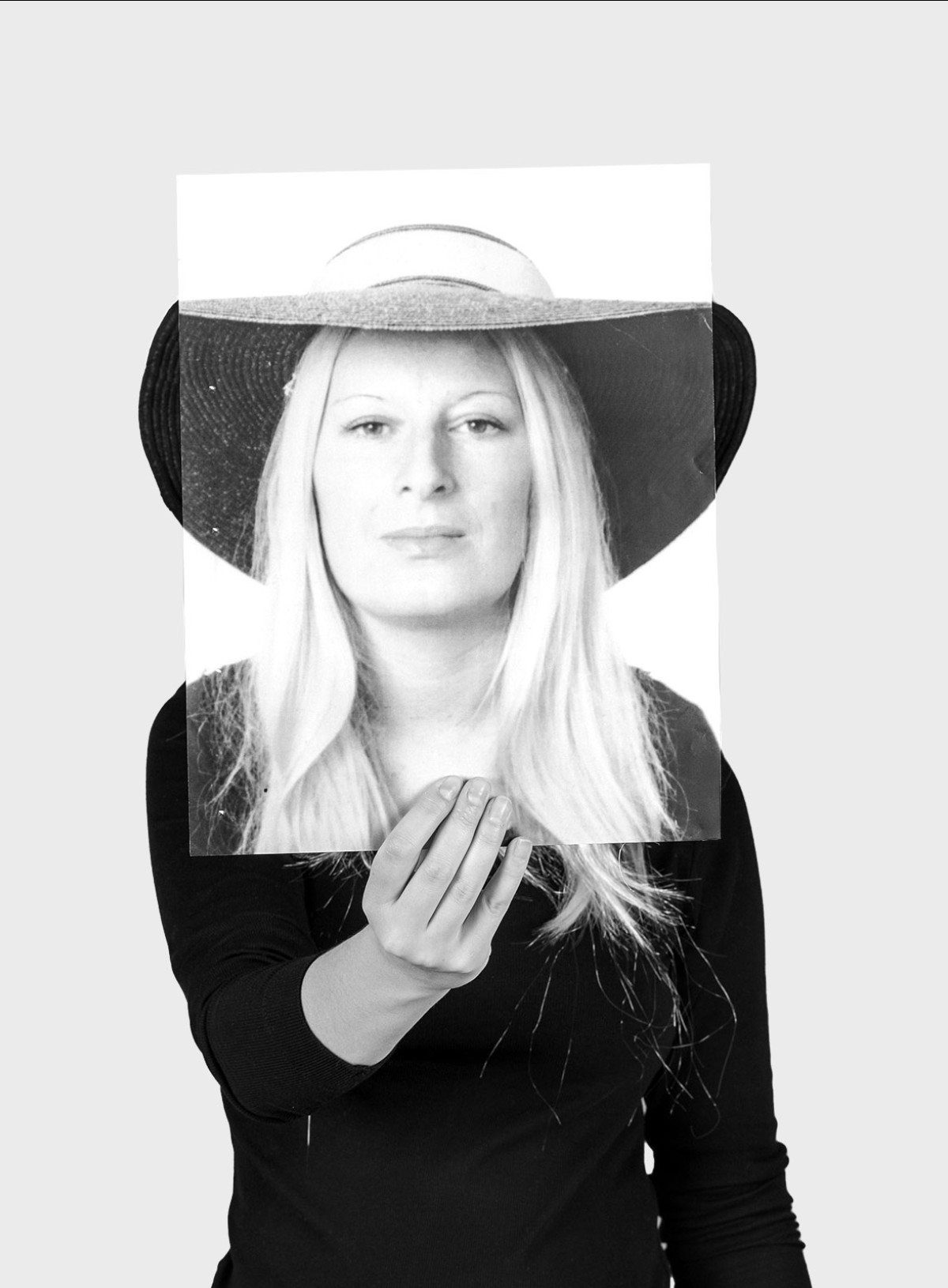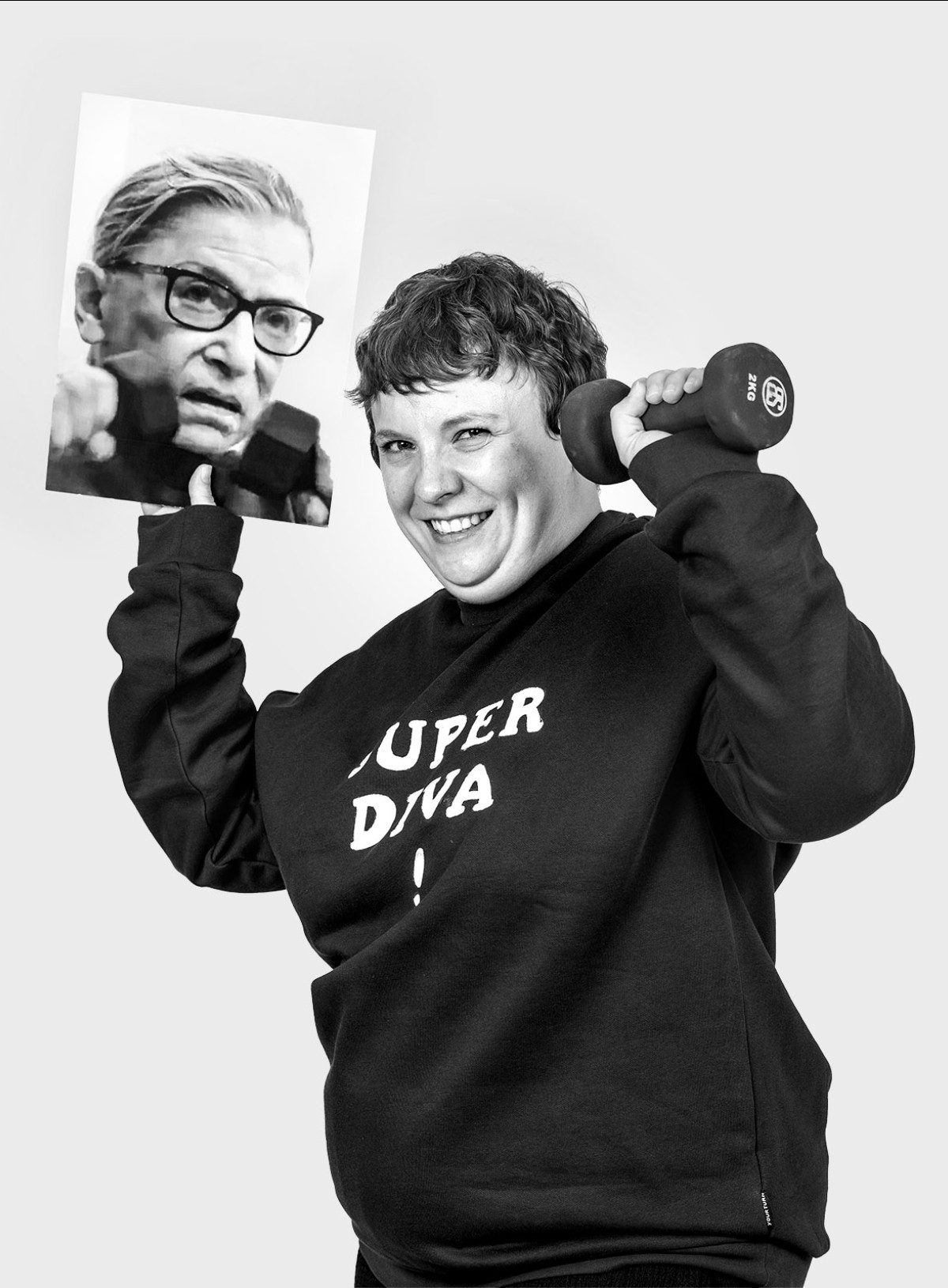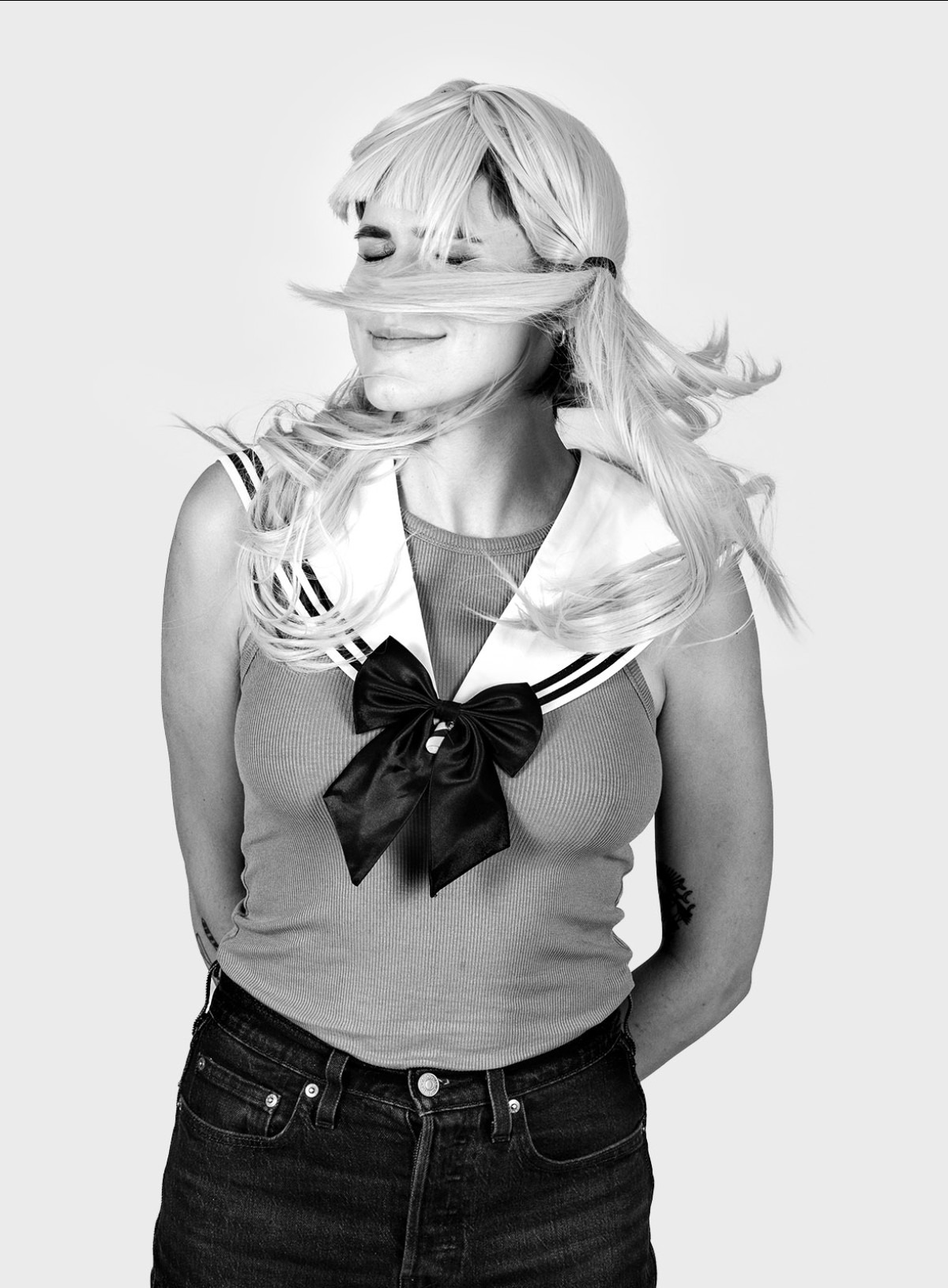

Barbara Krattiger
she/her
board member
Our vision is a just society where all people, regardless of gender, live free of violence and in a self-determined manner.
Brava combats violence against women and sexism in Switzerland. In so doing, we pay special attention to people in particularly precarious situations, such as women refugees.
We counter injustices by taking various approaches: with education programmes, counselling, political work and awareness-raising work.
Brava is feminist.
This means we fight for a society free of coercion and violence, and criticise discriminatory power structures. We see violence against women and sexism as consequences of a lack of equality. That is why we fight for the empowerment of people who are disadvantaged and affected by violence because of gender.
Brava works openly and inclusively.
Combating violence against women is something that we do with, and for, all people who experience gender-based violence. So also with and for trans, inter and non-binary people.
Brava works in an anti-racist and intersectional manner.
This is because people who repeatedly experience discrimination (due to race, dis_ability, gender identity, sexual orientation, social status, age etc.), get left out most often.
Brava is a donation-based non-profit-oriented NGO. We handle the money entrusted to us in a careful and responsible way, so that we, together with our supporters, can achieve as much as possible.
Brava is a modern circular organisation that practises “shared management”. We take on management tasks in the team as a whole and in small groups – with clear responsibilities and processes. We are a learning organisation, constantly in further development.
The Brava board works on a voluntary basis. Current board members are


she/her
board member


she/her
board member


she/her
board member


she/her
board member
Sociologist, former scout, solution-oriented practicioner with a sense for people and numbers. She enjoys breaking social norms - in particular concerning families and relationships or when it comes to our office cat Piru (because she prefers dogs). She finds inspiration for her political activism in life and the works of the Mexican painter Frida Kahlo.


she/–
Responsible education
People describe her as refreshingly uncomfortable. Before, she was active as «feminist und antiracist kill joy» in the educational sector. Now she is focusing on working with people who want to contribute to a feminist, anti-racist society. At Brava, she does this as the person responsible for education and counselling, and in her remaining time as an independent diversity consultant. What makes her happy? Spending time with friends, good food, sports, being creative, nice surprises and reading good books, for example «Freedom Is A Constant Struggle» by Angela Davis, a civil rights campaigner and author.


she/–
Responsible counselling
Social worker, queer feminist and music lover. She likes to share her latest musical discoveries in her absence messages. At Brava, she is responsible for counselling people affected by gender-based violence. She lives and works as anti-racist and activist. As a child of Albanian migrants, she was confronted with racism early on, which is what shapes her feminism today. She has also been influenced by her grandmother's life, which stands for the life of many migrant women, who are often invisible and forgotten in the feminist fights in Switzerland.


she/her
Responsible finances
Financial crackerjack and art lover. She loves working with numbers, reads enthusiastically and likes to paint. Apart from her paid work and caring for her children, she is active at the National Commission dini Mueter (ekm) and the Office for Feminism for better working conditions in the care work sector. She admires the women in her family who achieved great things as single parents.


she/her
Responsible fundraising
Business economist, sales talent and passionate fundraiser. She grew up in Mexico and was at an early age confronted with the injustices of the world. Since then, she has always been working towards justice and equality. She has a lot of experience in the non-profit sector, in particular in the areas of human rights and development cooperation. Animals, nature, and yoga help her to keep her balance even in turbulent times of everyday life in an NGO. She admires Malala Yousafzai for her endless courage to give a voice to those in our community who have none.


she/her
Responsible advocacy & lobbying


she/her
Responsible communication
lara.horisberger@brava-ngo.ch


she/–
Responsible for political campaigns and multimedia.
Visual communicator who adapts content so it is pleasing to the eye. Our expert for simple design. Snow sports instructor. Doesn’t think much of filter coffee, but more of dolce vita – pizza Margherita, vino e caffè. Growing up in a mountain village, discrimination experiences awakened her political will. The art of Nadia’s nonna to cook a feast with few ingredients inspired her design style: reduced to the max.


she/her
Responsible further education and training
A mover and shaker. She doesn’t just look over the edge of her plate, but over the whole place setting. BA-Graduate and primary school teacher. Formerly guardian for unaccompanied minor asylum seekers. Fled to Switzerland, because she was active in the Kurdish women’s movement. Tireless fighter for justice. Knew and admired Gurbetelli Ersöz, the first female editor in chief in Turkey.


she/her
Responsible Advocacy & Lobbying
Legal expert, chaos tamer and dog mum. She is writing a thesis on the limits of Swiss Democracy. She gives a legal voice to destitute people at Legal Help. Inspiring and convincing. Her hobbies often change, except for her love for cooking and reading. She grew up in a small village in Lucerne and lived in South Carolina, Zurich, Lausanne, Hong Kong, and Berne. She admires the tenacity and humour of Ruth Bader Ginsberg, who, as a lawyer and judge, believed in basic rights and fought for their implementation.


she/-
Responsible counselling
Social worker, astro-physics nerd, and rightful adoptive parent of our office cat Piru. When she is not counselling persons affected by violence for Brava, she is sitting in a lecture hall, goes hiking in the mountains on her own and without any sense of orientation or plays guitar. Role models mean as much to her as the patriarchy - absolutely nothing. Out of protest (and their shared love for cats) she chose Sailor Moon.


sie/ihr
Responsible education


she/her
Responsible fundraising
Communications talent and non-profit expert who is enthusiastic about historic hotels or their ruins. Injustices make her angry and thoughtful, which motivates her to actively contribute. For a long time, she did this at an inclusive House of Culture, where she was esteemed for her intelligent questions and open ear. When she is not busy fundraising for Brava, she teaches her friends how to swim, plays board games in her large flat-sharing community or lets herself be inspired by feminist authors, for example by Margarete Stokowski.


she/her
Responsible for the project “Voices of Refugee Women”
tahmina.taghiyeva@brava-ngo.ch
Journalist, activist and project manager of our project «Voices of Refugee Women». She had to leave Azerbaijan, because she wrote critically about the government in her journalistic work. Since then, she is active for refugees in Switzerland - professionally and in private, with kindness, stamina and sensitivity. A life without activism? Unthinkable - which is what she has in common with her Azerbaijani comrade-in-arms and queer activist, Lili Nazarov.


she/her
Responsible HR
We are turning 20 and feel the urge to let go of old things and discover new things. At the same time, we are ruminating on the question if we are up to these changes. We take on the great challenge of change and movement by going through a process of organisational development.
But the intensive internal process does not limit our work towards the outside world: 2023 is the year where, together with our allies, we make history with the sexual offences reform, where the participants of the Voices project meet Federal Councillor Elisabeth Baume-Schneider and we ensure with our Brava-Spider that voters take the work against violence into account in the federal elections. Apart from these highlights, our day-to-day business continues: we counsel, lobby, raise awareness, hold workshops and trainings, demonstrate, post, raise funds, debate during panel discussions, and do media work.
On 15th December we celebrate our 20th anniversary with 100 supporters at the queer feminist room in Berne and raise our glasses to another 20 years to come.
A year without certainties. FINTA, feminists and allies around the world had to come to terms with the fact that setbacks are always possible, even on the road to equality: the Taliban take power in Afghanistan, women and activists are murdered in Iran, abortion rights are overturned in the USA and women in Switzerland are outvoted in the reform of the pension system.
We publish the brochure "Violence against women - a feminist perspective" in the middle of the year and print the second edition in autumn already.
The Voices project gets its own project manager and gathers momentum: at the beginning of the year, the participants meet with politicians, attend the international women's conference "Breaking Borders to build Bridges" in Berlin in August and arrange a meeting with the newly elected Federal Councillor Elisabeth Baume-Schneider for the following year.
Together with allies, Brava achieves that national prevention campaigns against violence and prevalence studies on violence will become a reality in the near future and that the introduction of a contemporary sexual criminal law comes within reach.
The organisation launches its new image as Brava. Brava stands for brave and courageous, for empowerment! With our new appearance we can stand as the unique organisation that we have always been, independent from Terre des femmes Germany.
We are successful in finally getting the federal government and the cantons to initiate a national 24-hour hotline for all persons experiencing violence throughout Switzerland.
Our advocacy team is heavily involved in civil societies’ alternative report on the implementation of the Istanbul Convention in Switzerland.
During the campaign of the cfd “16 days against violence against women”, we show the film “The Case You” at the Human Rights Film Festival Zurich.
After many years of committed work against female genital mutilation and as co-founder of the Network against female genital cutting Switzerland, Brava decides to strategically focus on violence against women, sexism and refugee women as overarching issues. In this context, we decide to step back from the operative work of the Network against female genital cutting.
A crazy first year of Covid-19. The governmental #StayHome-Campaign was accompanied by an information campaign against domestic violence. We are successful in our urging that the campaign should be implemented in various languages.
We increasingly raise awareness about femicides in Switzerland. With the online series “Against violence against women - a feminist view” we share our feminist knowledge and memory.
Our organisation may celebrate! We are one of the winners of the Brückenbauer_innenpreis of NCBI and receive the Ana-Orantes premium of Spanish women in Switzerland.
Several hundred thousand people take to the streets in Switzerland for the feminist strike on 14th June to protest for equal work and equal pay and against sexism and violence. 28 years after the first women’s strike gender equality has still not been achieved in Switzerland.
With the online campaign “Ausgeliefert statt angekommen” TERRE DES FEMMES Switzerland demands protection and justice for refugee women.
It is also an intensive period within the organisation. We opt for an organisation with flat hierarchies in the form of a modern circle organisation with “shared leadership”.
Cheers to the global #MeToo-movement against sexualised violence. With our campaign #RememberRefuShes we also put the spotlight on gaps in the Swiss asylum system that refugee women have to grapple with every day. In addition, TERRE DES FEMMES Switzerland, together with the Kirchliche Kontaktstelle für Flüchtlingsfragen KKF (Church Contact Point for Refugees), is publishing the first guide on the issues of domestic and sexualised violence in the asylum sector. It demonstrates how people working in the asylum system can prevent violence and support the persons affected by violence.
Switzerland ratifies the Istanbul Convention of the Council of Europe on prevention and action against violence against women and domestic violence. We initiate the civil society Network Istanbul Convention with organisations and specialised services from all over Switzerland.
We consolidate our feminist self-image. In the theatre production “Alice” that we develop in cooperation with the Konzert Theater Bern we are exploring the fundamental question of how gender influences self-determination.
The SVP politician Andrea Geissbühler claims in an interview that women are complicit in their own violation because they act naively. The outraged answer is quick to come. Under the hashtag #SchweizerAufschrei, women from all over Switzerland talk about their everyday life full of sexism and sexualised violence.
With the establishment of the Network against female cutting Switzerland the many years of advocacy work by TERRE DES FEMMES Switzerland and other organisations pay off.
We open an official advisory service.
The incidents of New Year’s Eve in Cologne and the related media coverage show how violence against women is instrumentalised and externalised in racist terms.
Irene Santiago, Secretary General of the 1995 NGO Conference, is invited for the eighth “Voix des Femmes” of TERRE DES FEMMES. This time, the topic is the lack of gender equality and gender-based violence in Switzerland.
Because of increasing demands, TERRE DES FEMMES Switzerland decides to create an easily accessible advisory service for gender-based violence. Apart from giving information, the organisation also offers workshops with refugee women which are conducted with key persons and interpreters. The empowerment workshops become an integral part of our work and are permanently adapted. In addition, the organisation conducts training workshops for professionals. It started with just simple presentations, but turned into a strong possibility of further education.
Since gender equality requires dealing with different gender stereotypes, TERRE DES FEMMES Switzerland is using the World Cup summer and the public viewing of the match between Switzerland and France as an opportunity to discuss different forms of masculinity with the public.
The organisation is doing important ground work and publishes a report on the accommodation of refugee women in collective housing. The report shows that it fosters gender-based discrimination and the needs of women are not sufficiently taken into account.
TERRE DES FEMMES Switzerland celebrates its 10th anniversary with two events at the Kunstmuseum Bern. At both events, a guided tour of the exhibition “Das schwache Geschlecht - Neue Mannsbilder in der Kunst” (the weak gender - new images of men in art) is co-organised by TERRE DES FEMMES Switzerland. Additionally, various workshops on the issue of gender roles are held. The exhibition deals with the topical issue of how masculinity is staged in contemporary art.
TERRE DES FEMMES Switzerland concludes the inventory of existing measures against female genital mutilation in Switzerland.
One step in the right direction: Parliament approves the federal law against forced marriage. At the same time, a national study on this issue is published. The Federal Council decides on a programme to combat the new offence for the period of 2013 to 2018. TERRE DES FEMMES Switzerland takes on the coordination of pilot projects and turns the website “zwangsheirat.ch” into a platform for information and networking.
The association is also still active on the issue of sexism and launches the 4-year-campaign “Rollen rollen” against gender stereotypes.
One year with two anniversaries in the name of gender justice: 40 years of women’s suffrage and 30 years of the article on equality. The matters Jörg Kachelmann and Dominic Strauss-Kahn show, however, that patriarchal structures are still predominant.
A study conducted by TERRE DES FEMMES Switzerland, for which 32 asylum procedures of female applicants were examined, shows that women-specific grounds for asylum are still insufficiently taken into account in the Swiss asylum procedure.
The debate around the burqa shows that the issue of sexism is still present in Switzerland. TERRE DES FEMMES Switzerland is against a prohibition and demands instead a well-founded debate on sexism rooted in society that goes beyond instrumentalised symbolism. In December, the National Council decides on a national prohibition of female genital mutilation. TERRE DES FEMMES Switzerland welcomes this decision, but also stresses the need of prevention and awareness-raising.
The first edition of “Voix de Femmes” takes place with Edna Adan, the activist from Somaliland. This series of events will be continued until 2017.
At the beginning of the year, TERRE DES FEMMES is in financial difficulties and it is not clear if and how the organisation can continue its work in Switzerland. Thanks to a generous donation this phase of insecurity can be overcome.
In February, the awareness-raising campaign “Reality Check” against sexism in advertising kicks off. In the debate around the initiative against minarets TERRE DES FEMMES takes a stand against the instrumentalisation of women who allegedly are threatened by islamification.
With the campaign “Schnitt ins Leben. Weibliche Genitalverstümmelung - auch in der Schweiz” (Cut into life. Female genital mutilation also in Switzerland.) the organisation is fighting against female genital mutilation.
Two events to the main issue of trafficking of women take place. In March, TERRE DES FEMMES Switzerland organises a conference for professionals in Berne. In the summer, the organisation co-launches the campaign “Euro08 against trafficking of women” during the football championship Euro08. Despite a lack of funding, the exhibition “FGM - auch in der Schweiz” can be put into place. From 25 November to 10 December, TERRE DES FEMMES Switzerland is participating for the first time in the campaign “16 days against violence against women”, which is organised by the feminist peace organisation cfd.
Four years after its establishment, TERRE DES FEMMES Switzerland is consolidating as an organisation and creates its own areas of expertise on the issues of public space, female genital mutilation and forced marriage. The association publishes a coursebook and teaching material on the issue of forced marriage. At the same time, TERRE DES FEMMES Switzerland is struggling for financial stability. The aim is to offer employees a fair and appropriate salary.
A socio-politically turbulent year. The adoption of the new Foreign Nationals Act and the revision of the Asylum Act turn Switzerland into the European country with one of the most restrictive legislations. Women, in particular non-documented women, are heavily affected by this development. TERRE DES FEMMES Switzerland is involved in the referendum campaign against both proposals.
In March, the development of a prevention brochure against female genital mutilation is launched, in cooperation with the Ministry of Health. It gives migrants information on the dangers of genital mutilation and the legal situation in Switzerland.
TERRE DES FEMMES Switzerland launches a campaign against violence in the name of honour. The touring exhibition “Tatmotiv Ehre” (motive honour) is one part of it. It will be shown over the next two years in various cities across Switzerland. The association implements an emergency fund for refugee women. About ten women are supported in their asylum procedure on grounds of female genital mutilation or violence in the name of honour. They receive legal support. At the same time, TERRE DES FEMMES Switzerland is starting to become active against female genital mutilation.
TERRE DES FEMMES Switzerland is officially founded as an association in Berne on 25 November, the International Day against Violence against Women. By a cooperation agreement, the association is linked to the German association TERRE DES FEMMES, which was founded in 1981. The members of the disbanded Organisation für die Frau (OFRA, organisation for women) are integrated into TERRE DES FEMMES Switzerland. Apart from sexism and violence in the name of honour, the focus is put on the issues of forced marriage and female genital mutilation (FGM/C).
The project TERRE DES FEMMES Switzerland is institutionalised through the foundation of a simple society. The five founding women want to open an office in Berne. The first priorities are the issue of sexism, a touring exhibition on violence in the name of honour and individual support for refugee women.